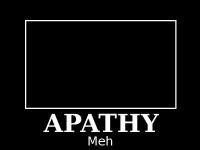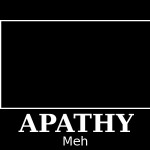I often hear pastors and seminary professors bemoaning the widespread biblical illiteracy within the church today. I don’t think it’s the problem.
Is it true? Are people more ignorant of the Bible than they were 10, 20, 50, 100 years ago? Of course. There’s no denying it. Studies, surveys, and tests have proven it. For example, when I entered Seminary, they gave us an entrance exam on our knowledge of biblical and theological ideas, and then, as we neared graduation, they gave it to us again to see if we learned anything. Most of us did improve, of course, but the professor who proctored our exam said that over the years, the test has not changed, but the scores have steadily decreased. Both incoming and graduating seminary students know less than similar students from previous generations.
And this isn’t just a problem with seminary students. It’s true in almost all churches.
So why do I believe it’s not a problem? Here’s why:
What has ever-increasing Biblical knowledge ever done for the church? The main thing isn’t how much you know, it’s what you do with what you know. And I think that we live in a generation that looks at the scholars of our own day and the past and says, “Well, that’s great that they could recite the Bible backwards, but what did they do with that knowledge except for write a bunch of books and preach a bunch of sermons? Nothing? Well, then I guess I don’t need that knowledge.”
 The problem facing modern Christianity is not biblical illiteracy, but biblical apathy. People don’t care what they don’t know unless they can see a direct link between learning something and using what they learn to love and serve others.
The problem facing modern Christianity is not biblical illiteracy, but biblical apathy. People don’t care what they don’t know unless they can see a direct link between learning something and using what they learn to love and serve others.
Just take a look at how many companies today are using “community service” benefits to attract young employees. That’s right. Companies used to offer health benefits, 401(k)s, and career advancement opportunities. But new and upcoming employees are asking, “Are you going to give me time to take what I am learning in this business and use it to help people in Africa? If not, I’ll look elsewhere.”
That’s the way the church needs to use biblical knowledge. We must show the direct link between learning something from the Bible and using what we learn to help others in need. If no such direct link can be made, then we should not complain when people don’t want to learn it.
So do you want to increase Biblical literacy? Then show how knowing the Bible will help transform lives, our communities, and the world. And this doesn’t mean more time given to application in the sermon. It means actually taking people out into the world to put the Word into practice.
Agree? Disagree? Let me know!




“Agree? Disagree? Let me know!”
_____________________________________
Short answer : both.
Explanation:
First, I see that you have pure motives and a beautiful desire to serve the LORD in your community. That is awesome! I have much to learn from you in that aspect.
Second, I think your way of thinking is due to a reaction to a doctrinal christianity in which you’ve been raised that lacked much practice in christian service (i just guess! I may be wrong). In my case, it’s different. Not that I was raised in a practical christianity as such, but I was surely not raised in a doctrinal christianity.
It’s clear that a balance of doctrine and practice is the ideal. Doctrine without practice is not useful, but practice without doctrine leads to nowhere … seriously, to nowhere.
The only reason why I dont fully agree with your thoughts is that you seem to take a too much pragmatic view on the biblical doctrines.
You say: “We must show the direct link between learning something from the Bible and using what we learn to help others in need. If no such direct link can be made, then we should not complain when people don’t want to learn it.”
The idea that some doctrines might not be shown useful for service and that only the others should be worth having our attention goes against the principle of studying and preaching the whole counsel of God. The Word of God is His Word. He gave it to us. It’s not an accident. The truth instead is this one :
(2 Timothy 3:14 ..)
“But continue thou in the things which thou hast learned and hast been assured of, knowing of whom thou hast learned them; 15 And that from a child thou hast known the holy scriptures, which are able to make thee wise unto salvation through faith which is in Christ Jesus. 16 All scripture is given by inspiration of God, and is profitable for doctrine, for reproof, for correction, for instruction in righteousness: 17 That the man of God may be perfect, throughly furnished unto all good works.”
As you can see ALL scripture is useful even though we might not see the direct effect .. and interestingly, the apostle link those scriptures with good works.
So, yes, your motivation and goal is excellent … let us be careful for not neglecting the Word by eliminating some part of it in our study or preaching because we cannot see a direct link between that part and service. In the end, it is the Spirit of Christ that works through us whenever we do something that pleases God. But the Spirit never works himself without the Word of God. The Word is the sword of the Spirit. Let us keep the Word whole so that the sword has all its efficacy. He is sovereign and will use any of His Word for His own purpose. The Word never comes back without its intended effect.
However, I totally agree with the spirit of this article 🙂
Mathieu,
Thank you for the gracious and thoughtful reply. As you sensed, I am struggling over this somewhat.
I wouldn’t say I was raised in doctrinal Christianity, though I definitely adopted it at some point in my life, and you are right, I may be (over)reacting to that. I definitely am not trying to discard sections of the Bible, or tell us to stop learning.
Thanks!
I think you may be unclear on “social justice.” Jesus didn’t teach us social justice. All prominent “Christian” organizations and churches that aim for social justice simultaneously sacrifice right doctrine. While it is certainly the job of every Christian to “occupy until He comes” it is through the foolishness of preaching, Paul said, that God chose to save people. We are to go into all the world and preach the GOOD NEWS, and make disciples. That is our first duty. We cannot do that if we don’t know the Scriptures, otherwise what message will we be preaching? We can feed the hungry AND give them the Gospel simultaneously – that’s Christianity in action. Proponents of social justice do the former and eliminate the later. That is NOT real Christianity in action.
There is more in the Bible than we could master in a lifetime that is relevant to how we live our daily lives. I don’t think our problem is having a lack of relevant material. To whom shall we go? Jesus, alone, has the words of eternal Life (said Peter). Our problem is not a lack of relevant understanding. Our problem is mastering the understanding we do have. 1 Corinthians 9:27
We are living in a time when prophecy is being fulfilled before our eyes.
We might do well….. 2 Peter 1:19
Aqua,
Well… I understand the words “save” and “gospel” different than you do, I think. The gospel is not just a message about how to go to heaven when we die, but is a full-orbed declaration that challenges all aspects of our lives, including how we treat the poor, hungry, and marginalized. And when we proclaim this, we do it not just with words, but with our actions as well. In fact, primarily with our actions.